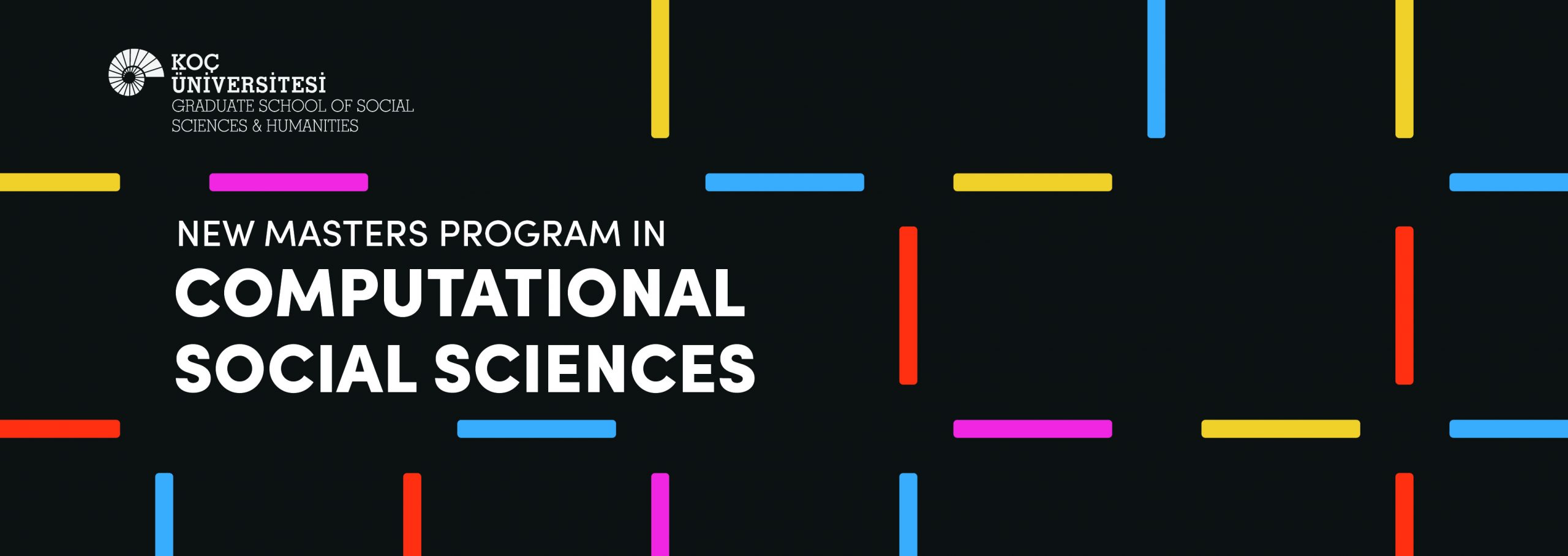Computational Social Sciences
Today, digitalization is an unstoppable megatrend. The availability of large amount of digital traces of millions of people has created new opportunities for social scientists to study many aspects of life including health, energy, agriculture, transportation and public administration. In order to analyze this plethora of social data, pioneering social scientists have adopted computational methods from other disciplines (including machine learning, natural language processing and computer vision) which have now become the indispensable core of current scientific research and literature in social sciences.
Computational social science makes it possible for researchers to collect data from rapidly spreading new data sources such as online platforms, mobile devices, satellites and sensors, and to perform social science analyses with these new types of data. In addition to their direct contribution to social sciences, these new data types and resources are instrumental in the study of topics such as data privacy, artificial intelligence ethics and the spread of false information, thus creating new research areas. Moreover, computational and quantitative methods are increasingly applied in analyses of diverse local and global problems (such as the COVID-19 crisis) and their solution.
Given the increasing significance of this field, leading universities in Europe (especially the UK, Switzerland, Germany, Italy, The Netherlands and Sweden) and North America have incorporated computational and quantitative methods into their social science curricula. Pioneering in computational and quantitative social science research in Türkiye, Koç University established a Master of Arts (MA) degree program in the field of Computational Social Science in 2021. The first of its kind in the country, the CSS MA program aims to deepen the theoretical and methodological training in computational social science methods. This two-year graduate program will provide researchers with the skills to work with larger data sets than they encounter in traditional social science fields, to use state-of-the-art tools such as artificial intelligence and machine learning, text processing, network analysis, etc. and to apply the most up-to-date computational techniques.
As an interdisciplinary program, CSS MA aims to create a synergy by combining existing courses and research initiatives with lectures and research techniques on new methods. In this respect, social sciences and humanities courses will enable students to develop their computational and mathematical skills, while students with these skills will deepen their competencies in social science theory and examine social science research questions. The courses and applications aimed at improving the analytical skills of students in the field of social sciences in areas such as big data analysis, computer simulations, network analysis and machine learning constitute the basis of the program content. Designed in this way, the program aims to provide new and complementary dimensions to existing graduate programs and to create an important resource in a research area that is much more demanding than the existing human resources can meet.
The primary objectives of the program, therefore, are to raise generations who can conduct high quality social science research both nationally and internationally, follow new methods in the field and have the ability to successfully apply them.


Acknowledgement
This master’s program is based on work funded by the European Union’s Horizon 2020 Research and Innovation programme under Grant Agreement No 952128.






